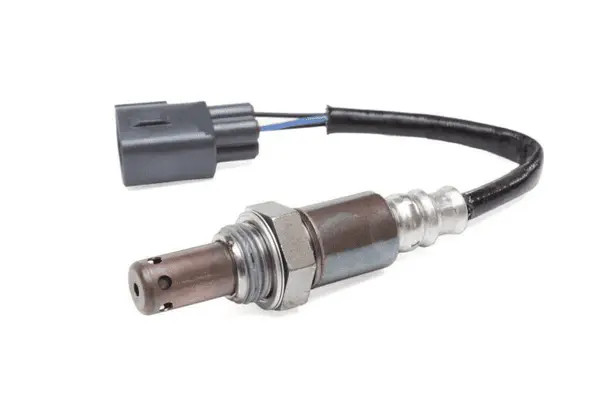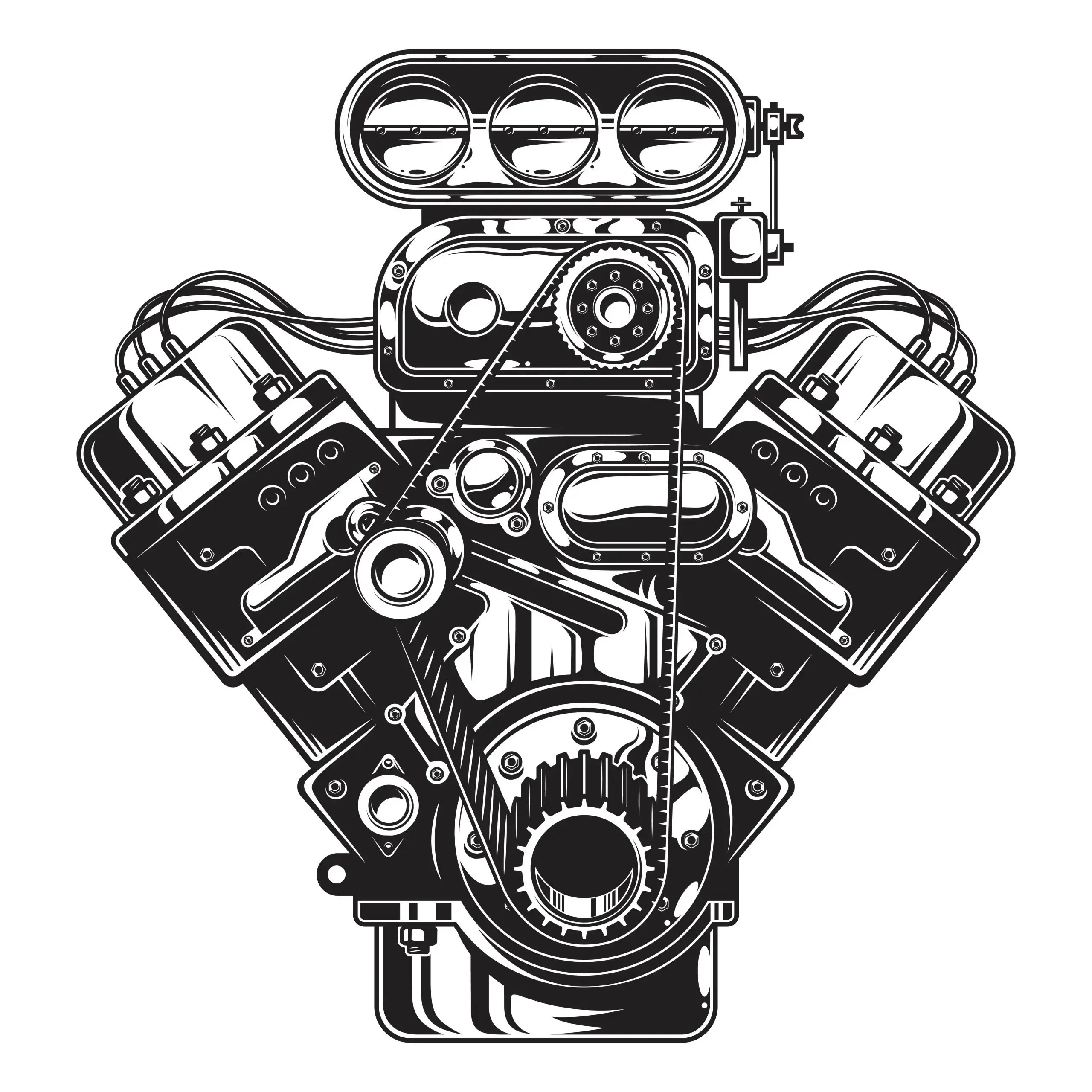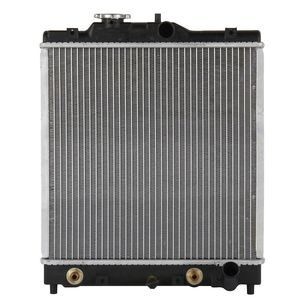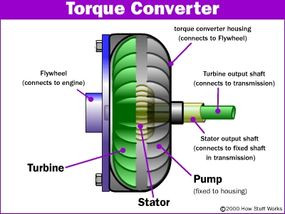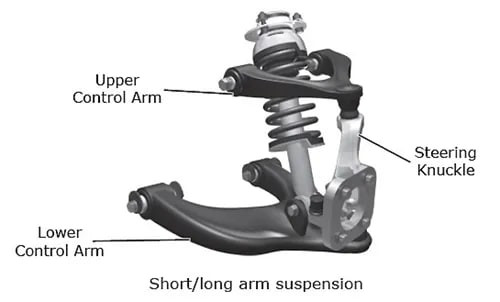Do You Have ASE or Equivalent Certifications? Enhancing Auto Repair Credibility
Do you have ASE (Automotive Service Excellence) or equivalent certifications? This credential significantly boosts credibility, demonstrating your proficiency and commitment to quality in automotive service and repair. CARDIAGTECH.NET emphasizes the importance of such certifications, as they reflect a technician’s expertise and dedication to upholding industry standards, leading to enhanced customer trust and professional recognition. Invest in your skills and career with the right tools and certifications, ensuring you stay ahead in the rapidly evolving automotive landscape.
1. Understanding ASE Certification
Does ASE (Automotive Service Excellence) certification matter in the auto repair industry? Absolutely. ASE certification serves to elevate and maintain the benchmark for vehicle repair and maintenance. It establishes standards for the entire industry, holding individual technicians accountable. Though not a regulatory entity, it attests to the reputation, specialization, and quality within the automotive, diesel, and collision repair sectors.
- Industry Standard: ASE sets the bar for quality in automotive service.
- Technician Accountability: Ensures technicians meet specific skill and knowledge standards.
- Reputation and Quality: Certification enhances credibility in the industry.
“ASE certification is a testament to a technician’s commitment to excellence and expertise in automotive repair,” according to the National Institute for Automotive Service Excellence (ASE).
2. The Genesis of ASE: A Historical Perspective
Since its inception in 1972, ASE has certified over 250,000 automotive technicians and service professionals. This certification program benefits car owners, repair shops, and auto professionals alike, cementing its place as a cornerstone of the automotive service industry.
- Benefits for Car Owners: Ensures competent repairs for even the most complex issues.
- Advantages for Repair Shops: Enables qualification for the Blue Seal of Excellence Recognition Program, enhancing market visibility.
- Recognition for Auto Professionals: Acknowledges and honors their knowledge and skills within the industry.
These ASE tests are meticulously crafted by seasoned professionals, including manufacturers, educators, and technicians, ensuring they reflect real-world scenarios.
3. Exploring the Diverse Types of ASE Certifications
What types of ASE certifications are available? ASE presents an extensive array of certification tests covering virtually every aspect of the automotive service and repair sector. When starting, it’s crucial to understand the following:
- Format: Tests typically comprise 40 to 75 scored, multiple-choice questions designed to assess knowledge in specific certification areas.
- Test Development: Questions are developed and approved by industry experts, focusing on scenarios technicians encounter daily.
- Recognition: Achieving certification after meeting work experience requirements and passing tests earns the prestigious Blue Seal of Excellence.
- Fees: Each registration window incurs a $34 fee, with an additional $59 per test and $118 for advanced tests (L1, L2, and L3). Recertification fees mirror these rates.
- Work Experience: ASE certification mandates full-time, hands-on experience or a blend of formal training and practical experience.
For detailed information, visit the ASE website.
The certifications range from truck equipment to damage analysis and estimating. Explore the specifics on the ASE test series page:
- Automobile & Light Truck Certification Tests
- Collision Repair & Refinish Certification Tests
- Damage Analysis & Estimating Certification Test
- Automobile Service Consultant Certification Test
- Truck Equipment Certification Tests
- Alternate Fuels Certification Test
- Auto Maintenance and Light Repair Certification Test
- Transit Bus Certification Tests
- Advanced Engine Performance Specialist Certification Test
- Electronic Diesel Engine Diagnosis Specialist Certification Test
- Light Duty Hybrid/Electric Vehicle Specialist Test
- Engine Machinist Certification Tests
- Parts Specialist Certification Tests
- School Bus Certification Tests
- Medium-Heavy Truck Certification Tests
- Undercar Specialist Exhaust Systems Test
- ASE Military Tactical Wheeled Vehicle Certification Tests
- Non-Certification Assessments
If you’re new to auto repair, consider the Automobile & Light Truck Certification series, which includes nine tests (A1-A9), each featuring 40 to 50 multiple-choice questions.
- A1 – Engine Repair
- A2 – Automatic Transmission/Transaxle
- A3 – Manual Drivetrain & Axles
- A4 – Suspension & Steering
- A5 – Brakes
- A6 – Electrical/Electronic Systems
- A7 – Heating & Air Conditioning
- A8 – Engine Performance
- A9 – Light Vehicle Diesel Engines
Achieve certification in a specific area by passing one test or strive for Master Automobile Technician Status by passing A1-A8 (A9 is not required for Master status).
4. The Myriad Benefits of ASE Certification
Why should automotive, diesel, and collision repair technicians pursue ASE certification? Holding ASE certification comes with significant advantages.
- Demonstrates Expertise: It assures customers of your knowledge and skill, providing clear, concise answers to their queries.
- Signals Commitment: It communicates to employers that you are dedicated to perfecting your craft and pursuing excellence.
- Expands Knowledge: Preparing for the ASE test deepens your understanding and confidence in your areas of expertise.
- Enhances Earning Potential: Improved skills and education can lead to salary increases and promotion opportunities.
- Increases Job Demand: ASE certification is a universal benchmark, making certified technicians more attractive to potential employers.
For technicians considering a career in automotive, diesel, or collision repair, meeting ASE certification requirements is a strategic career move.
5. Step-by-Step Guide: How to Obtain ASE Certification
How do you get ASE certified? Here’s a detailed guide:
Step 1: Accumulate Work Experience
- Requirement: You need a minimum of two years of hands-on work experience in the automotive repair field.
- Alternative: Formal training from a recognized institution like Universal Technical Institute (UTI) can substitute for one year of work experience.
Step 2: Register for the ASE Exam
- Create an Account: Visit the ASE website and create a myASE account.
- Registration Fee: Pay the registration fee, which is $34 per registration window.
Step 3: Choose Your Test(s)
- Select Area: Decide which certification area you want to specialize in (e.g., Engine Repair, Brakes, Electrical Systems).
- Test Fees: Pay the fee for each test, which is $59 per test or $118 for advanced tests (L1, L2, and L3).
Step 4: Prepare for the Exam
- Study Guides: Use ASE study guides and official practice tests to prepare.
- Sample Questions: Answer sample questions within the testing platform to familiarize yourself with the test format.
Step 5: Take the Exam
- Test Centers: Take the exam at an ASE test center. UTI students can often take exams on campus.
- Format: Exams consist of 40 to 75 multiple-choice questions.
Step 6: Receive Certification
- Passing Score: Pass the exam to receive your ASE certification.
- Blue Seal of Excellence: Gain recognition with the Blue Seal of Excellence.
Step 7: Maintain Certification
- Recertify: ASE certifications last for five years.
- Recertification Exam: Take a recertification exam before expiration to maintain your certified status.
By following these steps, you can successfully achieve and maintain ASE certification, boosting your credibility and career prospects in the automotive industry.
6. Maximizing Your Chances: What to Expect and How to Prepare for ASE Certification
Worried about the ASE certification tests? These tests are crafted by industry professionals, technicians, and aftermarket manufacturers, not academics.
- Practical Relevance: Questions focus on real-world, practical issues you’ll encounter daily.
- Quality Assurance: Rigorous screening ensures questions are clear and well-written.
ASE provides resources like study guides and practice tests. Explore sample questions within the testing platform to familiarize yourself with the format. Exams can be taken at ASE test centers, with UTI students having the option to take them on campus. Register by creating a myASE account and prepare to advance your career.
7. Achieving Excellence: How to Become an ASE Master Technician
How can you achieve ASE Master Technician status? In addition to two years of hands-on work experience, you must pass a specific group of tests. Here are the tests required for each series:
- Automobile: A1 – A8
- Collision Repair: B2 – B5
- Medium-Heavy Truck: T2 – T8
- School Bus: S1 – S6
- Transit Bus: H1 or H2 and H3 – H8
- Truck Equipment: E1 – E3
Technicians certified in tests 2 through 7 in the Medium-Heavy Truck, Transit Bus, or School Bus series can also achieve Master Medium-Heavy Vehicle Technician status by:
- Diesel Engines: Passing one or more tests in H2, S2, or T2.
- Drive Train: Passing one or more tests in H3, S3, or T3.
- Brakes: Passing one or more tests in H4, S4, or T4.
- Suspension & Steering: Passing one or more tests in H5, S5, or T5.
- Electrical/Electronic Systems: Passing one or more tests in H6, S6, or T6.
- Heating, Ventilation & A/C: Passing one or more tests in H7, S7, or T7.
For more information on achieving Master Technician status, visit ASE test series.
8. Staying Current: ASE Recertification Process Explained
How does ASE recertification work? ASE certifications must be renewed every five years. If you hold Master Technician status and a required certification expires, you will lose that status but can regain it by passing ASE’s recertification tests, even after expiration.
ASE simplifies the renewal process with the myASE Renewal app. Using your desktop, tablet, or mobile device, you can manage your certifications without visiting a test center.
- Monthly Questions: The app sends one question per certification area each month.
- Flexible Timing: Answer questions at your convenience within the allotted time.
- Immediate Feedback: Find out if your answers are correct and understand why.
Start your free trial and manage your certifications efficiently through the myASE Renewal app.
9. Do You Need Tools for ASE Certifications?
What specialized tools might you need as an ASE-certified technician? Depending on your area of expertise, certain tools can significantly enhance your ability to perform diagnostics, repairs, and maintenance tasks efficiently and accurately. Here’s a breakdown:
| Tool Category | Description | Why It’s Important |
|---|---|---|
| Diagnostic Scanners | Advanced devices that read vehicle computer systems, diagnose issues, and reset codes. Examples include Autel MaxiSys, Snap-on Solus Edge. | Essential for modern vehicles; quickly identifies problems, saving time and improving accuracy. |
| Multimeters | Used for measuring voltage, current, and resistance in electrical circuits. Brands like Fluke and Klein Tools are highly regarded. | Critical for diagnosing electrical issues, ensuring circuits are functioning correctly, and preventing damage. |
| Scan Tools | Devices that provide real-time data from the vehicle’s computer, allowing technicians to monitor performance. Examples include Innova CarScan Pro. | Helps monitor engine performance, identify anomalies, and ensure all systems are running optimally. |
| Torque Wrenches | Ensure fasteners are tightened to the manufacturer’s specifications. Brands like CDI and Precision Instruments offer reliable torque wrenches. | Prevents over- or under-tightening, crucial for vehicle safety and longevity, especially in engine and brake work. |
| Compression Testers | Measure the compression in engine cylinders to assess the condition of piston rings and valves. Brands like OTC and Actron are popular choices. | Vital for diagnosing engine problems, determining if an engine rebuild is necessary, and assessing overall engine health. |
| Brake Lathes | Reface brake rotors and drums to ensure smooth and even braking. Ammco and Pro-Cut offer high-quality brake lathes. | Ensures even braking performance, reduces noise, and extends the life of brake components. |
| Hydraulic Lifts | Raise vehicles to provide access to the undercarriage for repairs. Rotary Lift and BendPak are trusted brands. | Improves technician comfort and safety, provides better access for undercarriage repairs, and increases efficiency. |
| Wheel Alignment Machines | Measure and adjust vehicle wheel angles to ensure proper handling and tire wear. Hunter Engineering and John Bean offer advanced alignment systems. | Ensures optimal vehicle handling, reduces tire wear, and improves fuel efficiency. |
| A/C Recovery Machines | Recover, recycle, and recharge vehicle air conditioning systems. Brands like Robinair and Mastercool are well-known in the industry. | Complies with environmental regulations, ensures proper A/C system performance, and helps identify leaks. |
| Power Scan Tools | Versatile tools that perform a variety of electrical tests, such as voltage testing, continuity testing, and signal tracing. | Speeds up electrical diagnostics, provides accurate results, and reduces the risk of damaging sensitive components. |
| Cordless Impact Wrenches | Used for quickly removing and tightening bolts and nuts. Brands like Milwaukee and DeWalt are popular choices. | Increases efficiency, reduces manual effort, and speeds up disassembly and reassembly tasks. |
| Specialty Hand Tools | Include a variety of tools such as socket sets, wrenches, pliers, and screwdrivers. Brands like Snap-on, Mac Tools, and Craftsman are reliable. | Essential for performing a wide range of repairs and maintenance tasks, ensuring technicians have the right tool for every job. |
| Vehicle Diagnostic Software | Software programs that provide access to vehicle diagnostic data, repair procedures, and technical service bulletins. | Provides up-to-date information, troubleshooting guides, and repair procedures, helping technicians stay current with the latest vehicle technology. |
| Laptop | Used to run diagnostic software, access repair manuals, and communicate with other technicians. | Essential for modern automotive repair, providing access to critical information and facilitating communication. |
| Battery Tester | Evaluates the condition of a vehicle’s battery and charging system. | Determines if a battery needs replacement or if there are issues with the vehicle’s charging system. |
| Oscilloscope | Displays electrical signals as waveforms, allowing technicians to analyze circuit behavior. | Diagnoses complex electrical issues by visualizing signal patterns. |
Investing in high-quality tools ensures that you can diagnose and repair vehicles efficiently, meet the demands of modern automotive technology, and maintain a high level of professionalism.
10. Frequently Asked Questions About ASE Certification
1. Are ASE certifications worth it?
Yes, ASE certifications are beneficial for professional growth, demonstrating dedication and value to employers. The Bureau of Labor Statistics (BLS) indicates that many employers require industry certification.
2. How long do ASE certifications last?
ASE certifications are valid for five years, after which technicians must recertify to maintain their status.
3. Can formal training substitute for work experience?
Yes, formal training from a recognized institution can substitute for one year of the required work experience.
4. What is the Blue Seal of Excellence?
The Blue Seal of Excellence is a recognition awarded by ASE to repair shops with a high percentage of certified technicians, enhancing their market visibility.
5. How can I prepare for the ASE exam?
Use ASE study guides, official practice tests, and answer sample questions within the testing platform to familiarize yourself with the format.
6. What if my certification expires?
You can still regain Master Technician status by passing the recertification tests, even after the certification expires.
7. Is there an app for recertification?
Yes, the myASE Renewal app sends monthly questions per certification area, allowing you to manage your certifications conveniently.
8. What does ASE certification mean for car owners?
It assures car owners that the technician completing repairs has the knowledge and skills to handle even the most complex issues.
9. How do I register for the ASE exam?
Create a myASE account on the ASE website and pay the registration fee to get started.
10. What are the main benefits of becoming ASE certified?
Benefits include demonstrating expertise, signaling commitment to employers, expanding knowledge, enhancing earning potential, and increasing job demand.
Elevate Your Auto Repair Career with CARDIAGTECH.NET
Are you ready to take your automotive service career to the next level? At CARDIAGTECH.NET, we understand the importance of having the right tools and certifications to excel in the auto repair industry. Whether you’re aiming for ASE certification or simply want to enhance your skills and efficiency, we’re here to support you.
Why Choose CARDIAGTECH.NET?
- High-Quality Tools: We offer a wide range of top-of-the-line diagnostic scanners, multimeters, torque wrenches, and more to ensure you have the best equipment for every job.
- Expert Support: Our team is dedicated to providing expert advice and support to help you select the right tools and maximize their potential.
- Career Advancement: By investing in the right tools and certifications, you can increase your earning potential, improve your job prospects, and gain the respect of your peers.
Ready to Get Started?
Don’t let outdated tools or a lack of certification hold you back. Contact CARDIAGTECH.NET today and let us help you elevate your auto repair career.
- Address: 276 Reock St, City of Orange, NJ 07050, United States
- WhatsApp: +1 (641) 206-8880
- Website: CARDIAGTECH.NET
Get in touch with us now and discover how the right tools and certifications can transform your career!
By taking proactive steps to stay updated and certified, technicians can deliver high-quality services, enhance customer satisfaction, and achieve long-term career success.



